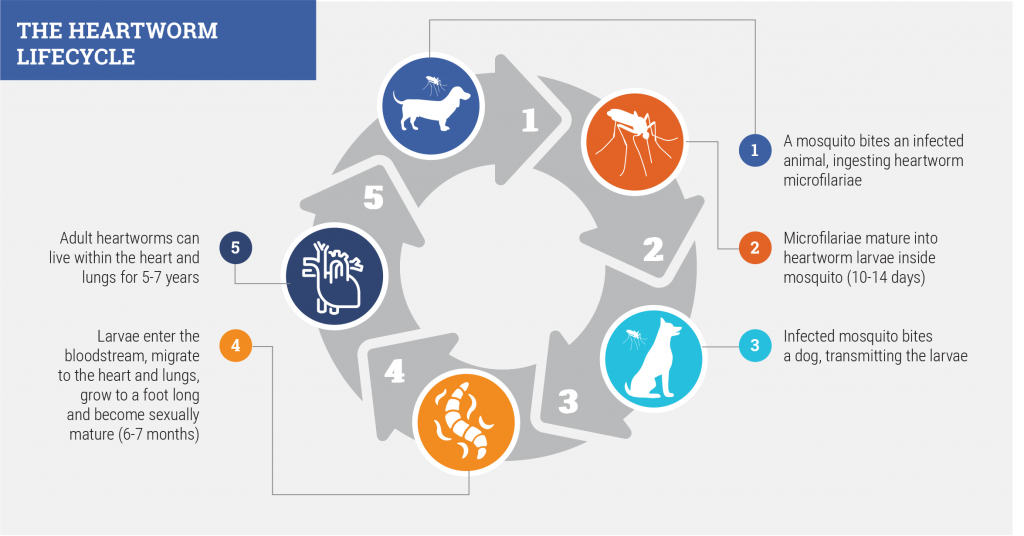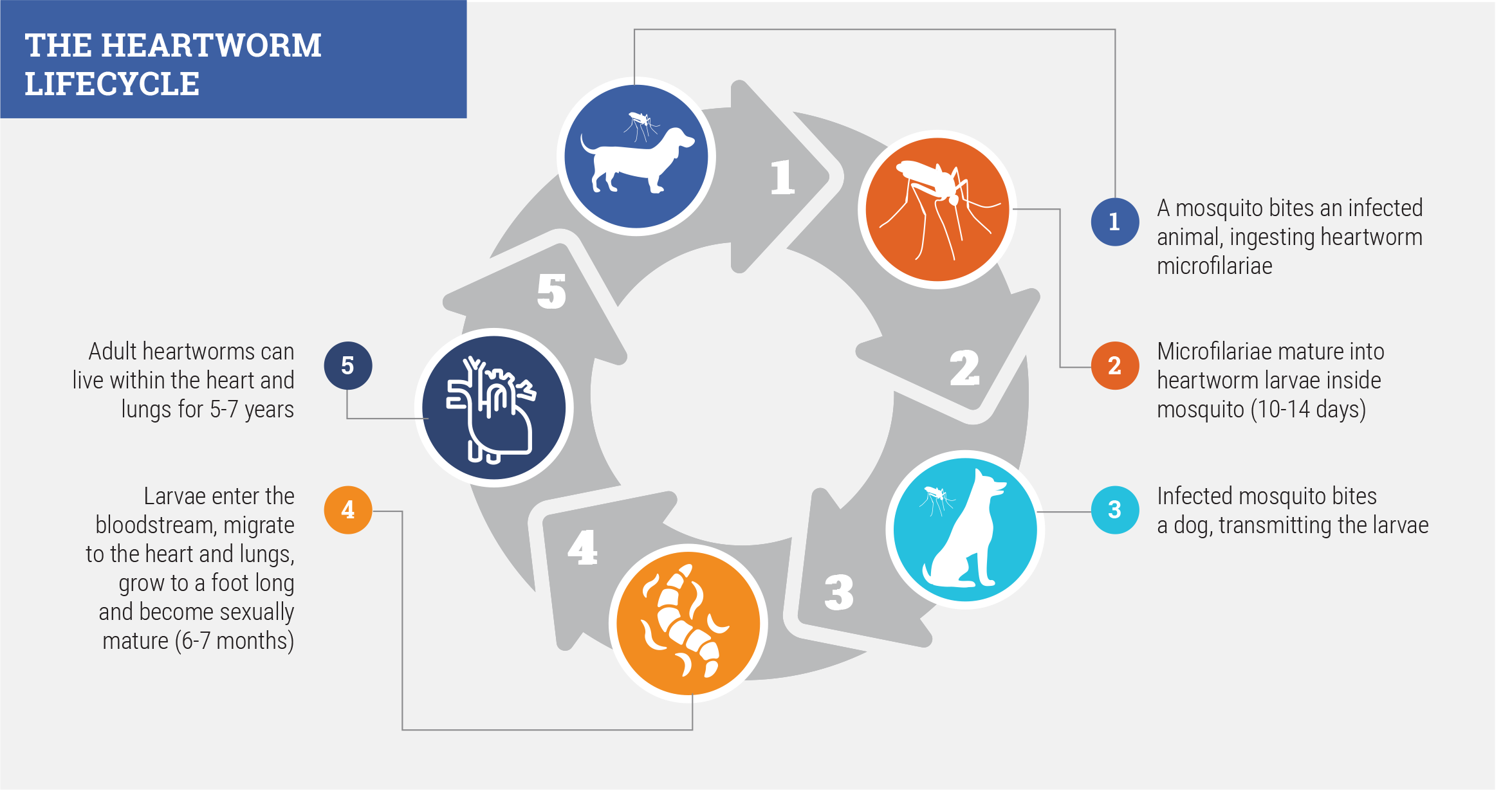While mosquitoes are an annoyance to people, they can be deadly to dogs. Mosquitoes can carry heartworm disease, a potentially fatal disease spread through the bite of a mosquito. Heartworm disease is found in all 50 states, and each Detroit-area veterinary clinic saw an average of six heartworm cases in 2013 alone.
The Heartworm Lifecycle
When a mosquito bites a heartworm-infected dog, it ingests the larvae of heartworms. The larvae are then carried by the mosquito, and are transmitted through a bite to other dogs. The larvae reach the bloodstream of the infected dog, where they travel to arteries of the lungs, where the larvae develop and grow into small worms, called microfilaria. The microfilaria then travel to the heart, where they develop into adult worms, which can reach 12 inches in length. This then causes damage to the heart and can lead to death.
Diagnosis, Symptoms and Treatment
Heartworm disease is diagnosed by testing a dog’s blood sample. Symptoms of heartworm disease can include coughing, fatigue, weight loss and fainting, though infected dogs commonly don’t display symptoms.
Treatment for heartworm disease is costly, often requiring antibiotics, injections to kill the worms, and hospitalization.
Prevention is EASY
Preventing heartworm disease is easy, requiring only a heartworm preventative, which can be purchased through your veterinarian after they have had a heartworm test. The preventative is given by mouth or applied topically. Year-round prevention is recommended as most preventatives treat for the previous month of exposure, and it is not uncommon or mosquitoes to linger beyond summer and fall. The use of heartworm preventatives not only protects your dog from the disease, but also prevents the spread of heartworm disease to other dogs in the area. Talk to your veterinarian about heartworm preventatives, and help to reduce heartworm in your area.


